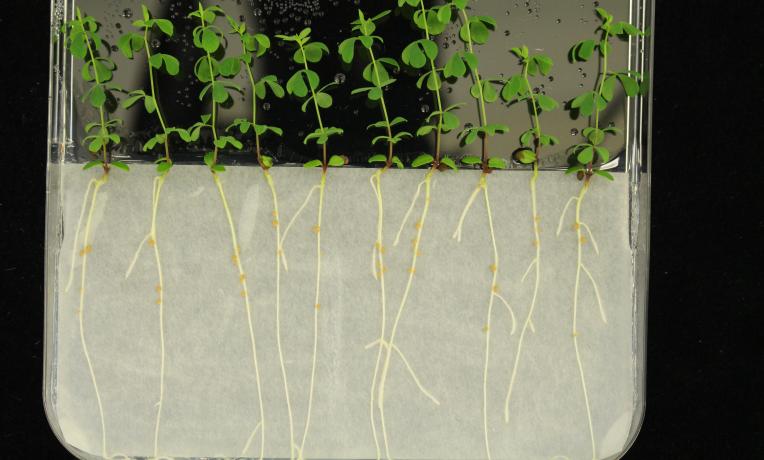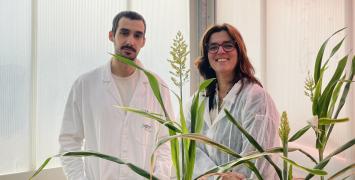Understanding the role of bacteria in leguminous plants
Beans, peas, lentils and other legumes are key elements in a balanced diet as they are a source of high-quality proteins. ERC grantee Jens Stougaard leads one of the most prominent research groups in legume science whose results may have long-term implications for sustainable agriculture and food security.

Leguminous plants constitute one of the largest crop plant families. Considering the importance of legumes for human and animal consumption, researchers struggle to improve our knowledge of the factors contributing to their growth as well as of their interaction with bacteria living on them to be able to increase yields production, avoid crop loss and prevent infectious diseases.
With support from the ERC, Jens Stougaard, professor of molecular biology and genetics at Aarhus University, has succeeded in identifying the exact molecular mechanism underlying the interaction between a legume host plant and Rhizobium bacteria, soil microorganisms that help fix nitrogen in leguminous plants. These bacteria colonise the roots of the leguminous plants that in response produce a set of new organs called ’nodules‘ on their roots. It is in those nodules that the bacteria fix nitrogen and convert it into ammonia, a compound necessary for plant growth and development.
Watching this video you are accepting Youtube cookies policy
Unveiling this process opens the door to the engineering of leguminous plants with enhanced nitrogen-fixing capacity that could result in boosted yields. With a second ERC grant, Stougaard is currently studying how soil microbes influence plant performance under conditions of environmental stress.
Combating world hunger
These findings may have both economic and societal impact in combating world hunger. Stougaard’s group is a research partner in the ENSA project – funded by the Bill & Melinda Gates Foundation through the University of Cambridge. The project aims at achieving significant yield productivity with no chemical fertilisers for small-holder farmers in sub-Saharan Africa.
'ERC funding provides a fantastic opportunity to address fundamental problems and obtain ground-breaking results that change our scientific understanding and move science to a new level,' says Stougaard. 'This can have benefits for the entire global community. In our case, our group’s participation in the follow-up ENSA project will ensue that our findings have concrete economic and societal impact in sub-Saharan Africa. Meeting the global challenges of producing sufficient food, while reducing the environmental impact, requires new science-based technologies and the ERC grants play a crucial role in promoting this.'
Bio
Jens Stougaard is a professor of molecular biology and genetics at Aarhus University (DK). His research interests focus on plant-microbe interactions. He was instrumental in developing Lotus japonicus as a model system for genetics, genomics and functional studies in legumes, which inspired many other researchers to work on this model plant. He was awarded two ERC Advanced Grants, in 2012 and 2019. In 2014 he ranked among the top 1% most cited researchers.






